
Resources.
The trusted online source for coffee digitalization information.
We provide public actors, independent organizations, coffee companies, industry professionals, cooperatives, and producers access to industry-wide information and strategic expertise on the use of technology in the coffee value stream.
-

Reference articles.
-

Videos.
-

Reports.
Reference articles.
In the coffee sector, the promise of digitalization is compelling, presenting opportunities for improved traceability, streamlined operations, and enhanced sustainability. However, underpinning this optimistic vision is a fundamental yet often underdiscussed aspect: data quality. Without accurate and reliable data, even the most sophisticated systems and tools will fail to yield meaningful outcomes. In this article, we share five tools that embed automated data checks in their solutions, as well as a reflection on the importance of building a data quality culture within organizations.
The EU Deforestation Regulation (EUDR) has sparked a lot of debate across the coffee industry and beyond. On the surface, most of us can agree that the intent is commendable. But turning this goal into practical measures has been particularly challenging. This complexity has led to a growing pushback against the EUDR enforcement timeline, prompting the European Union to reconsider its initial deadlines, offering an opportunity for companies to form strategic partnerships.
The use of mobile money continues to grow within the agricultural sector. According to GSMA's latest State of the Industry Report on Mobile Money, there are now 1.75 billion registered mobile money accounts worldwide, marking robust double-digit growth in recent years. This dynamic ecosystem has led coffee companies to pilot and integrate digital payment solutions with their partners and suppliers across different regions, positioning these as the future of business transactions. But what are the benefits for companies and farmers, and what does a successful case look like?
Despite Ethiopia's renowned coffee production, many smallholder farmers grapple with systemic challenges that hinder their productivity and profitability. To address these challenges and close the gap between small agribusinesses and the tech sector, the ITC's Alliance for Action has partnered with Bopinc to close the gap between small agribusinesses and the tech sector.
The field of sustainability reporting can be complex and intimidating. Technological advances have added to this complexity by making impact measurement and reporting more common and expected. However, digital tools also present significant opportunities to enhance data collection, analysis, and sharing, while enabling more accurate sustainability reporting. This has become crucial not only for meeting certifications and standards but also for complying with new governmental regulations. Aligning digitalization with impact strategies has therefore become essential for companies, both large and small.
The EU Deforestation Regulation (EUDR) is set to become a pivotal piece of legislation for the coffee sector, impacting every part of the supply chain, from producers to roasters. While importers are primarily responsible for providing the documentation to the EU, other stakeholders must contribute significantly to data collection. One significant, yet preventable, hurdle for compliance is receiving little attention – uncertainty surrounding who is responsible for the different areas for compliance. Should government agencies support producers with data collection? Must buyers take the lead instead? Who is responsible for verifying the information provided to the EU?
The rise of the digital era has ushered in a huge range of opportunities for the coffee industry, not least the possibility to trace coffees from origin to final consumer. While this has significant benefits, the process of collecting and sharing data is complex and can be inefficient if not done well. Traceability tools can be a solution, yet picking one and, more importantly, choosing the right one for a specific business is a gargantuan task that, when done without guidance, can costs huge amounts of money and time. In this article, we highlight five tools that can serve as a starting point.
Despite the extensive geographical coverage of broadband internet, a staggering 3 billion people do not use internet services due to challenges ranging from high cost of data to gaps in digital skills. This creates a significant problem for farmers, who are unable to access vital information for their businesses. So, how do we bridge the gap between uneven internet usage and the availability of information? In a world where high-tech solutions often grab the spotlight, the significance of 'low-tech' tools in agriculture stands as a testament to innovation meeting necessity.
Quality assessment in the coffee industry has long been a challenging endeavor, with defining standards across the supply chain proving to be a complex task. Artificial Intelligence stands as a transformative force with global implications across diverse industries, offering solutions that revolutionize processes and enhance efficiency. In the coffee industry, AI emerges as a game-changer, promising to enhance not only the efficiency of grading processes but also the overall coffee quality of the final product.
The coffee industry has long been plagued by a pricing transparency problem. Traditionally there has been information asymmetry across the coffee supply chain, creating an uneven playing field for the different stakeholders, most often putting farmers in an unsustainable price-taking position. One way to tackle this is by leveraging technology-based solutions that can provide specific information to offer enhanced pricing transparency. Coffee producers need an engine, not cogs. However, it is important to note that a single solution will not create a viable coffee business. It takes a holistic approach – starting with improving the negotiating position of coffee producers.
As roasting businesses expand, they must optimize their operations. Streamlined processes, scalable technology, and talent development are pivotal in ensuring business growth without sacrificing quality or exhausting resources. One of the key areas that draw most of a roasting business owner’s time is roasting itself, especially when you have started with a small-capacity machine. Suddenly you can find yourself roasting 8 hours a day, which leaves no time for other activities like marketing, sales, and customer service. In tackling the automation part of this challenge, here are three software systems that roasting businesses may find useful.
Genotyping is an important tool for improving traits in plants, as it helps scientists identify and validate links between a plant’s DNA to certain characteristics. This is particularly relevant in field trials and nurseries, as it allows for the selection of seedlings with specific attributes, such as resistance to diseases. While this type of technology has become increasingly common in many forms of agriculture, the coffee sector has fallen behind. One of the institutions working on developing genetic traceability tools for coffee is World Coffee Research (WCR), which seeks to bring higher quality plants to coffee farmers around the world and ensure the long-term sustainability of the sector.
Buying coffee internationally is fraught with complexities, risks and inefficiencies at every stage of the supply chain. Meanwhile, the growth of e-commerce has exponentially increased retail businesses' reach via marketplaces that facilitate business from the first point of sale to its final delivery. These same digital tools can greatly enhance the participation in international coffee trading at all levels of the coffee supply chain by connecting everyone in one centralized place. New York-based value chain management platform CropConex has entered this space by launching its own digital end-to-end marketplace.
Following the recent approval of the European Union Deforestation-Free Products Regulation (EUDR) by the European Council on May 19th, the coffee industry is now faced with the imperative of adopting digital tools to ensure compliance with this new regulatory framework. In this article, we present a small selection of examples among the wide range of tools catering to diverse user needs and operating contexts to demonstrate the possibilities in this context.
Nowadays, customers look more than ever for convenience, speed and personalization when interacting with coffee brands. Integrating technology is often the go-to solution for those seeking flexibility and innovation. Addressing the need for cost-effective, highly customizable digital solutions for small coffee brands, coffee packaging company Savor Brands has launched Savor Live, a subscription-based tool created with the mission of delivering technology to lift up specialty coffee roasters and cafés by providing them with their own branded mobile app.
Coffee retailers are increasingly relying on information technology solutions to better serve their customers, including mobile ordering and payments, handheld Point of Sale Systems devices, and digital menus accessed through QR codes. What has been missing until recently is technology for coffee retailers to better manage quality and consistency, improve communications between locations, report on equipment usage, and standard operating procedures. With baristas, retailer managers, and wholesale roasters in mind, Cropster's new tool promises to improve workflow and operations.
When they first appeared in 1994, QR codes were designed as an improved version of a barcode and were never supposed to be used beyond the manufacturing process. However, they have become ubiquitous since the early days of the COVID-19 pandemic, offering brands an easy, convenient and dynamic way to connect with consumers on a deeper level. But in a world where everything seems to already be a click away, are QR codes actually being scanned by coffee drinkers?
A year after the EU backed the COP26 Glasgow Climate Conference pledge to stop deforestation and land degradation, the European Commission has taken the commitment to forest conservation a step farther with the adoption of a specific deforestation-free products regulation. While this agreement is key for conservation and can potentially have significant social and economic benefits for communities whose livelihoods depend on forest ecosystems, it presents challenges for companies of all sizes, in particular when it comes to addressing the new requirements regarding data collection.
Coffee tasting started as an activity performed for trading and commercial purposes, but it has become a common practice among coffee enthusiasts as well. Like many other processes in the coffee industry, quality control activities have always been painstakingly recorded using paper assessment forms. However, as online solutions permeate our daily lives in the pursue of efficiency, coffee cupping has also gone digital. Today, cuppers use web applications and mobile apps, allowing them to record more accurate data, collaborate with remote teams, share information with clients, and effectively use data to find insights or identify patterns to improve their operations.
Coffee logistics have never been simple. Getting coffee from the port of origin to consumer involves a huge array of moving parts that need to work like clockwork. The rise in popularity of specialty coffee has added challenges to the coffee supply chain. Instead of large shipments of single lot containers, logistics professionals handle specialty coffee with up to 30 different lots shipped in one container. All lots have to be identified, separated and stored individually, and then finally released bag by bag.
Despite the opportunities offered by digital technologies in agricultural production, there are still low levels of appropriation in the field. The variables that play a part in the appropriation or non-appropriation of technologies have been studied more successfully – they range from factors related to access and the expertise required, to technical factors such as usability, compatibility and the relevance of information provided. It is important, however, to consider the role played by psychological factors in the appropriation of digital technologies. Among those factors, resistance to change, perception of similarity or compatibility, and trust are particularly important.
Did you know that reducing deforestation is one of the most effective options for climate change mitigation? Coffee farms have the potential to reduce deforestation through shade trees but often depend on clearing them to create firewood or to plant more crops. How do we mitigate climate change while not losing sight of our producers' needs? Dutch impact tech startup Carble has come up with a powerful answer: the combination of satellite imagery and digital payments. Partnering with satellite solutions provider Satelligence, they help coffee companies estimate how much carbon is stored by the trees of specific coffee farms so that a premium can be paid to producers based on those calculations.
UK online retailer Coffee Friend is a good example of how to handle coffee logistics in a way that benefits both the company and the consumer. “We thought that the meaning of having a great coffee at home symbolizes not only the taste itself but also the feeling of how great it is to always have coffee next to you,” says Gediminas Maziliauskis, Head of Supply at Coffee Friend.
Following up the first webinar session of the three-part series The Logic of Coffee Logistics, the second part, held on June 2nd, explored concrete case studies and challenges to digitalized logistics. This session was moderated by Stuart Ritson from Osito Coffee, panelists Kenean Asefa Dukamo of Daye Bensa Coffee, Kume Chibsa of Afrovalley, and Maria Grajales Gomez of Col-Spirit. The series concluded with a session held on June 16th, that was focused on looking toward the future of coffee logistics. Together with moderator Amaris Gutierrez-Ray of Joe Coffee Company, the panelists Brianna Dickey of CropConex, Guillermo Grassi of edoxOnline, and Felipe Cam of Mercon Coffee Group shared their perspective.
The current logistics crisis is affecting supply chains in virtually every sector and part of the world – and the coffee industry is no exception. In a bid to offer some context and understand how – and if – technology and digitalization can help ease the pressure on coffee sector operations, Digital Coffee Future held on May 19th the first conversation of its three-part webinar series The Logic of Coffee Logistics: Overcoming the Logistic Challenges of the Coffee Supply Chain. During this introductory event, Colleen Walsh of Olam Specialty Coffee, Don Lawrence of Intelligentsia, and Aleksandrs Sidorecs of Cognizant shared their experiences with us.
For the past two years, supply chains have faced many challenges and coffee has not been the exception. The Covid-19 pandemic had a massive impact on consumption behavior around the world, which directly impacted the logistics sector. With the aim of mitigating the effect of these uncertain circumstances, coffee companies are looking for new ways to counteract these logistics challenges. Among the many alternatives being adopted, the use of digital technology has started proving that reinventing logistics is possible.
In an industry where transparency and sustainability are increasingly demanded – yet those terms are not uniformly defined – it is surprisingly difficult to figure out whether farmers are paid enough to cover the basics. With this in mind, Colombia-based coffee export company Azahar Coffee set out to develop a tool to inform socially conscious coffee buyers about the price point required for farmers to achieve different levels of income. After three years of manually collecting data, the company presented the inaugural version of their Sustainable Coffee Buyer’s Guide (SCBG) at the 2022 SCA Expo last month.
After climate change, the lack of generational replacement is most likely the biggest threat to coffee production on a global scale. Mirroring global geographic dynamics – and as a consequence of the economic hardships faced by millions of coffee producers – new generations choose to migrate from rural areas towards cities seeking job opportunities and better access to goods and services such as education. While Information and Communications Technologies alone may not be enough to change this, they can play an important role in changing the dynamics.
According to data published by the International Coffee Organization, coffee producers have seen their average income decline by up to 10% over the last few years, leaving thousands well below the poverty line. In Nicaragua, for example, the proportion of those living on less than US$1.90 per day has gone up by a chilling 50%. While this reality is in part direct reflection of the low and volatile prices that have plagued the industry since the late 1990s, it is far from the only factor involved in the hardships affecting coffee producers worldwide.
We talked with Ben Palmer, Head of Sales for the UK & Europe at Mercanta, about his company’s efforts to digitize their supply chain and enable the transition to evidence-based storytelling. Mercanta is a renowned actor in the Specialty Coffee industry due to their relationship-based sourcing model, which aims to build long-lasting partnerships with their producers and create an economically sustainable environment along its supply chain.
Reports.

Our Summit Report includes all significant highlights of the Coffee Prices & Technolology Summit: Trends, Margins and Pay Gap. By reading the report, you will learn more about our price conversation and understand how technology can contribute as a solution to low and volatile prices and their impact on the coffee sector.

Our FOCL Summit Report includes all significant highlights of the Future of Coffee Logistics Summit. By reading the report, you will gain a sneak peek into our logistics conversation and become more aware of how logistics operations are going in the coffee sector.
Videos.
Coffee digitalization: let’s start talking webinar series.
Through this webinar, Ivania Rivera from Aldea Global, Isabel van Bemmelen from Progreso Foundation, Richard Bliault from Algrano and Yorick Bruins from Wakuli share their perspective on the efficiency of digital solutions for the coffee value chain. The session is moderated by Elisa Criscione.
Through this webinar, Ivania Rivera from Aldea Global, Isabel van Bemmelen from Progreso Foundation, Richard Bliault from Algrano and Yorick Bruins from Wakuli share their perspective on the efficiency of digital solutions for the coffee value chain. The session is moderated by Elisa Criscione.
This session explores the different aspects of integrating digital tools at origin especially for smallholder actors and other small players of the sector. Ankur Seth (IDH), Sunghee Tark (Bean Voyage), Shakeel Padamsey (The Coffee Gardens) and Rachel Nakasiita (Ibero Uganda) share their lessons learned. The session is moderated by Elisa Criscione
This session explores the different aspects of integrating digital tools at origin especially for smallholder actors and other small players of the sector. Ankur Seth (IDH), Sunghee Tark (Bean Voyage), Shakeel Padamsey (The Coffee Gardens) and Rachel Nakasiita (Ibero Uganda) share their lessons learned. The session is moderated by Elisa Criscione
In this session of the Digital Coffee Future series, Jean Orlowski (ECropOrigin), Dominik Mucklow (Cropster) and Oscar Magro (Sustainable Harvest) walk us through their experience of building digital solutions for coffee. This is an opportunity to learn more about the processes of software development. The session is moderated by Sara Morrocchi, Vuna Origin Consulting.
In this session of the Digital Coffee Future series, Jean Orlowski (ECropOrigin), Dominik Mucklow (Cropster) and Oscar Magro (Sustainable Harvest) walk us through their experience of building digital solutions for coffee. This is an opportunity to learn more about the processes of software development. The session is moderated by Sara Morrocchi, Vuna Origin Consulting.
The logic of coffee logistics webinar series - excerpts.
Don Lawrence from Intelligentsia Coffee shares from a roaster perspective, how he is envisioning technology being able to streamline logistics information.
Don Lawrence from Intelligentsia Coffee shares from a roaster perspective, how he is envisioning technology being able to streamline logistics information. Subtitles are available in English and Spanish. Extracted from the webinar series: The Logic of Coffee Logistics, Overcoming the Logistics Challenges of the Coffee Supply Chain.
Kenean Dukamo from Daye Bensa Coffee shares how he envisions the interaction between the internal team and their clients once the digital operations system will be fully set up.
Kenean Dukamo from Daye Bensa Coffee shares how he envisions the interaction between the internal team and their clients once the digital operations system will be fully set up. Subtitles are available in English and Spanish. Extracted from the webinar series: The Logic of Coffee Logistics, Overcoming the Logistics Challenges of the Coffee Supply Chain.
Colleen Walsh from Olam Specialty Coffee shares the reasons behind regional differences connected to the current logistics challenges.
Colleen Walsh from Olam Specialty Coffee shares the reasons behind regional differences connected to the current logistics challenges. Subtitles are available in English and Spanish. Extracted from the webinar series: The Logic of Coffee Logistics, Overcoming the Logistics Challenges of the Coffee Supply Chain.
Aleksandrs Sidorecs from Cognizant shares that technology can play a role for coffee companies to be more proactive in changing conditions.
Aleksandrs Sidorecs from Cognizant shares that technology can play a role for coffee companies to be more proactive in changing conditions. Subtitles are available in English and Spanish. Extracted from the webinar series: The Logic of Coffee Logistics, Overcoming the Logistics Challenges of the Coffee Supply Chain.
Maria Grajales Gomez from Col-Spirit shares what the biggest challenges of off-the-shelves solutions are for digitalized logistics.
Maria Grajales Gomez from Col-Spirit shares what the biggest challenges of off-the-shelves solutions are for digitalized logistics. Subtitles are available in English and Spanish. Extracted from the webinar series: The Logic of Coffee Logistics, Overcoming the Logistics Challenges of the Coffee Supply Chain.
Kume Chibsa from Afrovalley shares why as a service provider logistics is a big part of her digital solution and transparency model.
Kume Chibsa from Afrovalley shares why as a service provider logistics is a big part of her digital solution and transparency model. Subtitles are available in English and Spanish. Extracted from the webinar series: The Logic of Coffee Logistics, Overcoming the Logistics Challenges of the Coffee Supply Chain.
Felipe Cam from Mercon Coffee Group shares what has been the logistics digitalization process for Mercon and how this is being supported by the different operations teams.
Felipe Cam from Mercon Coffee Group shares what has been the logistics digitalization process for Mercon and how this is being supported by the different operations teams. Subtitles are available in English and Spanish. Extracted from the webinar series: The Logic of Coffee Logistics, Overcoming the Logistics Challenges of the Coffee Supply Chain.
Brianna Dickey from CropConex shares a future where tech providers offer interoperable solutions that also include logistics support.
Brianna Dickey from CropConex shares a future where tech providers offer interoperable solutions that also include logistics support. Subtitles are available in English and Spanish. Extracted from the webinar series: The Logic of Coffee Logistics, Overcoming the Logistics Challenges of the Coffee Supply Chain.
Colleen Walsh from Olam Specialty Coffee shares whether technology is currently part of the coffee supply chain operations.
Colleen Walsh from Olam Specialty Coffee shares whether technology is currently part of the coffee supply chain operations. Subtitles are available in English and Spanish. Extracted from the webinar series: The Logic of Coffee Logistics, Overcoming the Logistics Challenges of the Coffee Supply Chain.
Maria Grajales Gomez from Col-Spirit shares what have been their needs to start looking into a digital platform that could support with operations.
Maria Grajales Gomez from Col-Spirit shares what have been their needs to start looking into a digital platform that could support with operations. Subtitles are available in English and Spanish. Extracted from the webinar series: The Logic of Coffee Logistics, Overcoming the Logistics Challenges of the Coffee Supply Chain.
Don Lawrence from Intelligentsia Coffee shares whether he has seen any shift in how roasters have been dealing with logistics issues since the start of the pandemic.
Don Lawrence from Intelligentsia Coffee shares whether he has seen any shift in how roasters have been dealing with logistics issues since the start of the pandemic. Subtitles are available in English and Spanish. Extracted from the webinar series: The Logic of Coffee Logistics, Overcoming the Logistics Challenges of the Coffee Supply Chain.
Kume Chibsa from Afrovalley shares why risk management plays a role in digitalized logistics operations.
Kume Chibsa from Afrovalley shares why risk management plays a role in digitalized logistics operations. Subtitles are available in English and Spanish. Extracted from the webinar series: The Logic of Coffee Logistics, Overcoming the Logistics Challenges of the Coffee Supply Chain.
Kenean Dukamo from Daye Bensa Coffee shares how and why Daye Bensa Coffee started its digitalization process for logistics.
Kenean Dukamo from Daye Bensa Coffee shares how and why Daye Bensa Coffee started its digitalization process for logistics. Subtitles are available in English and Spanish. Extracted from the webinar series: The Logic of Coffee Logistics, Overcoming the Logistics Challenges of the Coffee Supply Chain.
Guillermo Grassi from edoxOnline shares his perspective on the next steps for the implementation of the electronic Bill of Lading within the industry.
Guillermo Grassi from edoxOnline shares his perspective on the next steps for the implementation of the electronic Bill of Lading within the industry. Subtitles are available in English and Spanish. Extracted from the webinar series: The Logic of Coffee Logistics, Overcoming the Logistics Challenges of the Coffee Supply Chain.
Felipe Cam from Mercon Coffee Group shares his perspective on what would be a successful digitalization of logistics in the industry a few years from now.
Felipe Cam from Mercon Coffee Group shares his perspective on what would be a successful digitalization of logistics in the industry a few years from now. Subtitles are available in English and Spanish. Extracted from the webinar series: The Logic of Coffee Logistics, Overcoming the Logistics Challenges of the Coffee Supply Chain.
Guillermo Grassi from edoxOnline shares his perspective on how digital documentation leads toward operations improvement for the coffee actors involved.
Guillermo Grassi from edoxOnline shares his perspective on how digital documentation leads toward operations improvement for the coffee actors involved. Subtitles are available in English and Spanish. Extracted from the webinar series: The Logic of Coffee Logistics, Overcoming the Logistics Challenges of the Coffee Supply Chain.
Brianna Dickey from CropConex shares why streamlining logistics information is part of the process of redistributing costs for coffee stakeholders.
Brianna Dickey from CropConex shares why streamlining logistics information is part of the process of redistributing costs for coffee stakeholders. Subtitles are available in English and Spanish. Extracted from the webinar series: The Logic of Coffee Logistics, Overcoming the Logistics Challenges of the Coffee Supply Chain.
Aleksandrs Sidorecs from Cognizant shares why the current coffee logistics started due to the pandemic is going to stay.
Aleksandrs Sidorecs from Cognizant shares why the current coffee logistics started due to the pandemic is going to stay. Subtitles are available in English and Spanish. Extracted from the webinar series: The Logic of Coffee Logistics, Overcoming the Logistics Challenges of the Coffee Supply Chain.
The logic of coffee logistics webinar series - full webinars.
During this third session of the webinar series “The Logic of Coffee Logistics”, Brianna Dickey from CropConex, Guillermo Grassi from edoxOnline and, Felipe Cam from Mercon Coffee Group discussed the opportunities of digitalized logistics in the near future. They shared their perspectives and framed the conversation around the needs and challenges to be taken into account when integrating technology solution for coffee operations.
During this third session of the webinar series “The Logic of Coffee Logistics”, Brianna Dickey from CropConex, Guillermo Grassi from edoxOnline and, Felipe Cam from Mercon Coffee Group discussed the opportunities of digitalized logistics in the near future. They shared their perspectives and framed the conversation around the needs and challenges to be taken into account when integrating technology solution for coffee operations.
During this second session of the webinar series “The Logic of Coffee Logistics”, Maria Grajales Gomez from Col-Spirit, Kenean Dukamo from Daye Bensa Coffee and, Kume Chibsa from Afrovalley shared their direct experience of digitalizing operations. They framed the conversation around the needs and challenges to be taken into account when integrating technology solution for coffee operations.
During this second session of the webinar series “The Logic of Coffee Logistics”, Maria Grajales Gomez from Col-Spirit, Kenean Dukamo from Daye Bensa Coffee and, Kume Chibsa from Afrovalley shared their direct experience of digitalizing operations. They framed the conversation around the needs and challenges to be taken into account when integrating technology solution for coffee operations.
During this first session of the webinar series “The Logic of Coffee Logistics”, Colleen Walsh of Olam Specialty Coffee, Don Lawrence of Intelligentsia Coffee Inc., and Aleksandrs Sidorecs of Cognizant discussed the intersection between coffee logistics and digitalization through sharing their experiences. They shared their perspectives and framed the conversation around the needs and challenges to be taken into account when integrating technology solution for coffee operations.
During this first session of the webinar series “The Logic of Coffee Logistics”, Colleen Walsh of Olam Specialty Coffee, Don Lawrence of Intelligentsia Coffee Inc., and Aleksandrs Sidorecs of Cognizant discussed the intersection between coffee logistics and digitalization through sharing their experiences. They shared their perspectives and framed the conversation around the needs and challenges to be taken into account when integrating technology solution for coffee operations.
The intersection between climate change and coffee digitalization - excerpts.
Kahlil Baker from Taking Root discusses whether carbon credits are part of the future in coffee.
Kahlil Baker from Taking Root discusses whether carbon credits are part of the future in coffee. Subtitles are available in English and Spanish. Extracted from the webinar series: The Intersection between Climate Change and Coffee Digitalization.
Saurin Nanavati from Ethos Agriculture shares how the industry can make climate-smart digital tools that are more efficient and equitable.
Saurin Nanavati from Ethos Agriculture shares how the industry can make climate-smart digital tools that are more efficient and equitable. Subtitles are available in English and Spanish. Extracted from the webinar series: The Intersection between Climate Change and Coffee Digitalization.
Hanna Neuschwander from World Coffee Research explains how technology plays a role in ensuring data quality for decision-making.
Hanna Neuschwander from World Coffee Research explains how technology plays a role in ensuring data quality for decision-making. Subtitles are available in English and Spanish. Extracted from the webinar series: The Intersection between Climate Change and Coffee Digitalization.
Saurin Nanavati from Ethos Agriculture explains what are the major challenges for the adoption of climate-smart digital tools.
Saurin Nanavati from Ethos Agriculture explains what are the major challenges for the adoption of climate-smart digital tools. Subtitles are available in English and Spanish. Extracted from the webinar series: The Intersection between Climate Change and Coffee Digitalization.
Hanna Neuschwander from World Coffee Research explains how traditional research methods can combine with more innovative tools.
Hanna Neuschwander from World Coffee Research explains how traditional research methods can combine with more innovative tools. Subtitles are available in English and Spanish. Extracted from the webinar series: The Intersection between Climate Change and Coffee Digitalization.
Kahlil Baker from Taking Root shares the definition of scale for climate-smart digital tools.
Kahlil Baker from Taking Root shares the definition of scale for climate-smart digital tools. Subtitles are available in English and Spanish. Extracted from the webinar series: The Intersection between Climate Change and Coffee Digitalization.
Diego Pons from the Colorado State University explains what is the future of climate tools in coffee.
Diego Pons from the Colorado State University explains what is the future of climate tools in coffee. Subtitles are available in English and Spanish. Extracted from the webinar series: The Intersection between Climate Change and Coffee Digitalization.
Patrick Lawrence from the Sustainable Food Lab explains the benefits of using climate-smart tools for the coffee industry.
Patrick Lawrence from the Sustainable Food Lab explains the benefits of using climate-smart tools for the coffee industry. Subtitles are available in English and Spanish. Extracted from the webinar series: The Intersection between Climate Change and Coffee Digitalization.
Vanessa Rojas Herrera from Icafe shares the costs of adopting climate-smart solutions on the farm.
Vanessa Rojas Herrera from Icafe shares the costs of adopting climate-smart solutions on the farm. Subtitles are available in English and Spanish. Extracted from the webinar series: The Intersection between Climate Change and Coffee Digitalization.
Diego Pons from the Colorado State University explains how weather forecast tools can interact with business plans for producers.
Diego Pons from the Colorado State University explains how weather forecast tools can interact with business plans for producers. Subtitles are available in English and Spanish. Extracted from the webinar series: The Intersection between Climate Change and Coffee Digitalization.
Vanessa Rojas Herrera from Icafe shares how climate-smart tools interact together to tackle climate change.
Vanessa Rojas Herrera from Icafe shares how climate-smart tools interact together to tackle climate change. Subtitles are available in English and Spanish. Extracted from the webinar series: The Intersection between Climate Change and Coffee Digitalization.
Patrick Lawrence from the Sustainable Food Lab explains how the Cool Farm Tool was adapted to coffee.
Patrick Lawrence from the Sustainable Food Lab explains how the Cool Farm Tool was adapted to coffee. Subtitles are available in English and Spanish. Extracted from the webinar series: The Intersection between Climate Change and Coffee Digitalization.
Juan Pablo Solis from Fairtrade International shares how producers can benefit from the application of climate-smart tools.
Juan Pablo Solis from Fairtrade International shares how producers can benefit from the application of climate-smart tools. Subtitles are available in English and Spanish. Extracted from the webinar series: The Intersection between Climate Change and Coffee Digitalization.
Alieth Polo from Caravela Coffee explains what is the role of the different actors in tackling climate change.
Alieth Polo from Caravela Coffee explains what is the role of the different actors in tackling climate change. Subtitles are available in English and Spanish. Extracted from the webinar series: The Intersection between Climate Change and Coffee Digitalization.
Valerie Beard from Conservation International shares what is the state of the art in the industry when it comes to climate change interventions.
Valerie Beard from Conservation International shares what is the state of the art in the industry when it comes to climate change interventions. Subtitles are available in English and Spanish. Extracted from the webinar series: The Intersection between Climate Change and Coffee Digitalization.
Alieth Polo from Caravela Coffee explains how to implement climate-smart applications on the farm level.
Alieth Polo from Caravela Coffee explains how to implement climate-smart applications on the farm level. Subtitles are available in English and Spanish. Extracted from the webinar series: The Intersection between Climate Change and Coffee Digitalization.
Valerie Beard from Conservation International shares what are the main aspects to take into consideration when applying digital tools for climate resilience.
Valerie Beard from Conservation International shares what are the main aspects to take into consideration when applying digital tools for climate resilience. Subtitles are available in English and Spanish. Extracted from the webinar series: The Intersection between Climate Change and Coffee Digitalization.
Juan Pablo Solis from Fairtrade International discusses the nexus between climate change and coffee digitalization.
Juan Pablo Solis from Fairtrade International discusses the nexus between climate change and coffee digitalization. Subtitles are available in English and Spanish. Extracted from the webinar series: The Intersection between Climate Change and Coffee Digitalization.












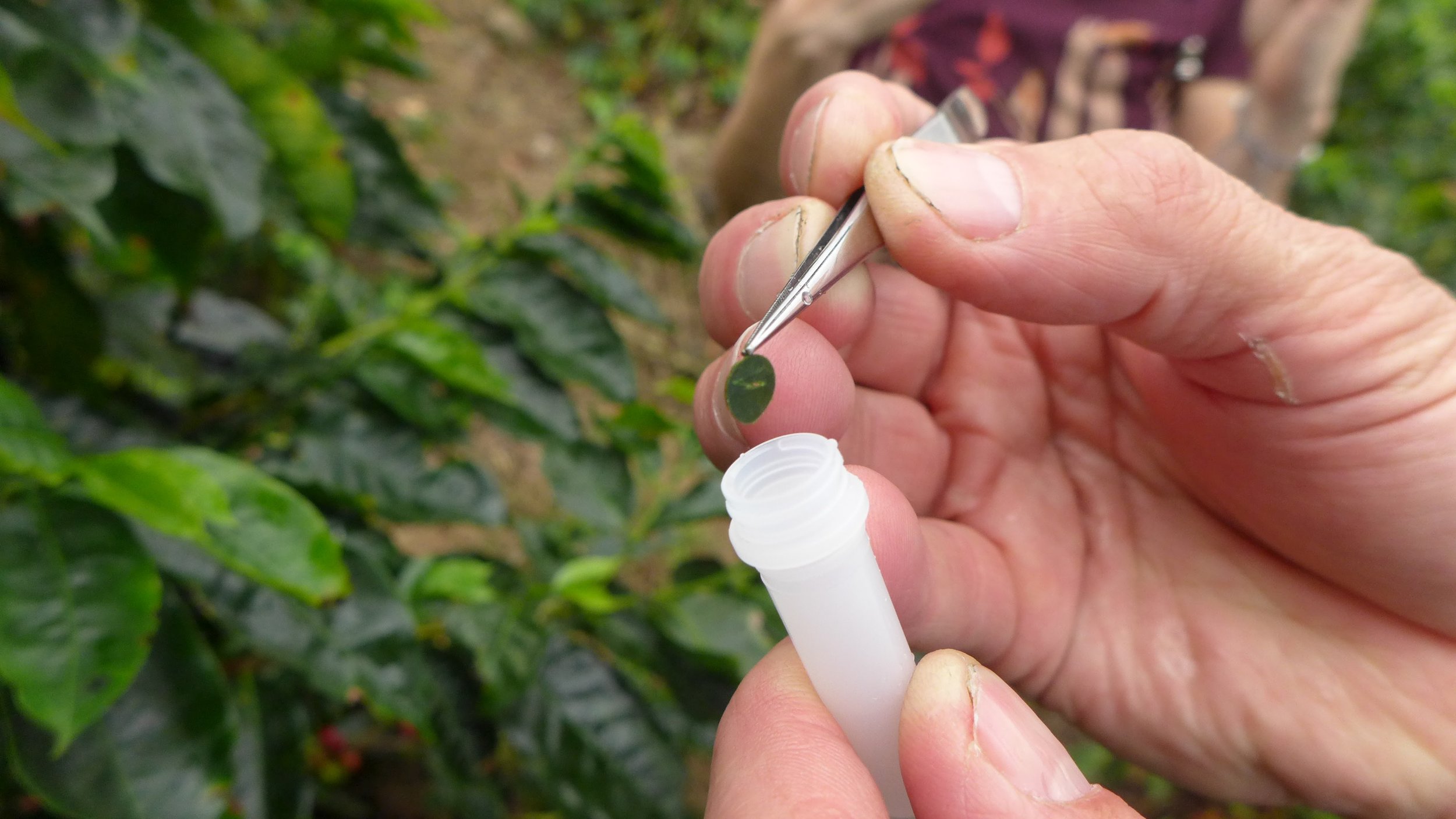



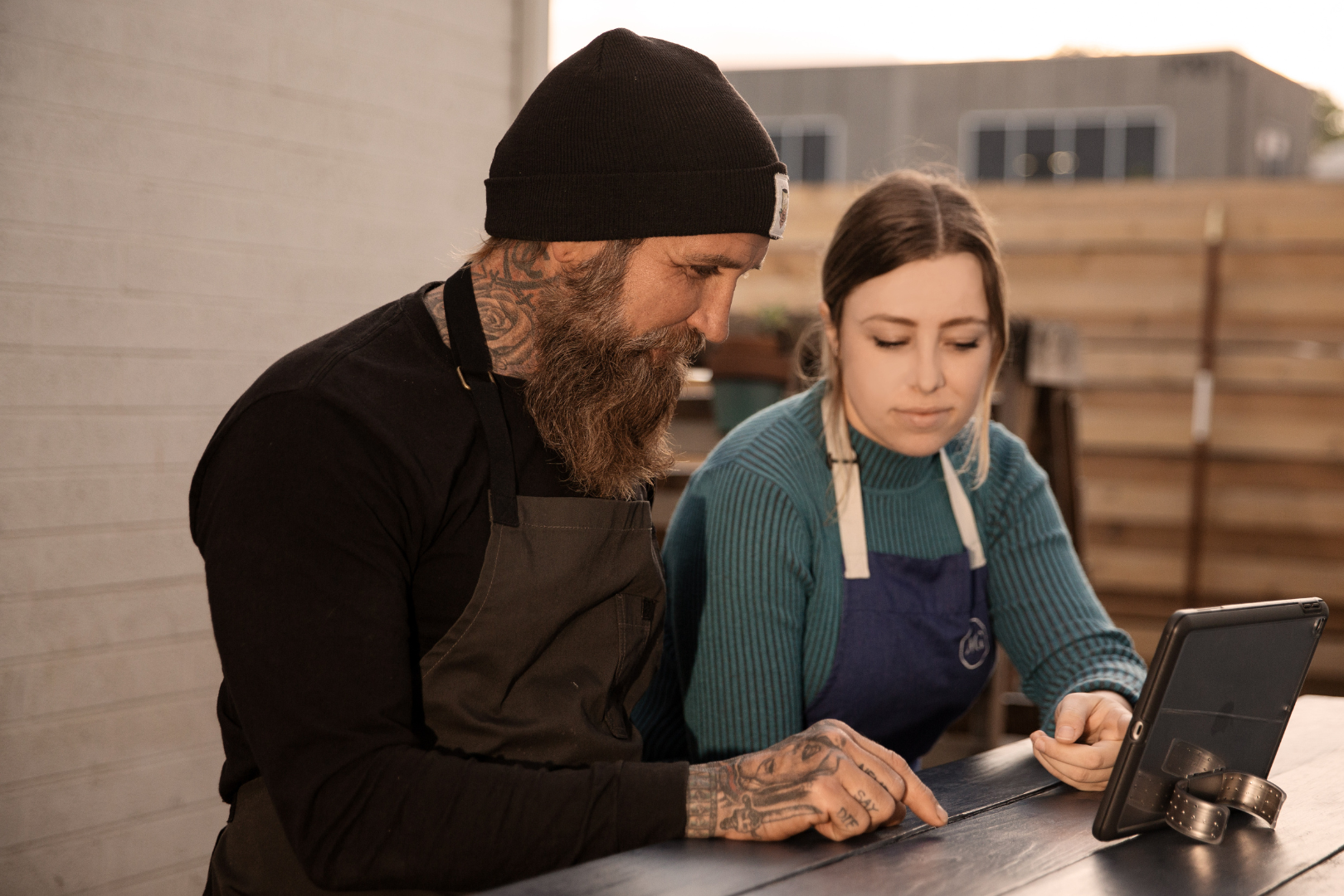


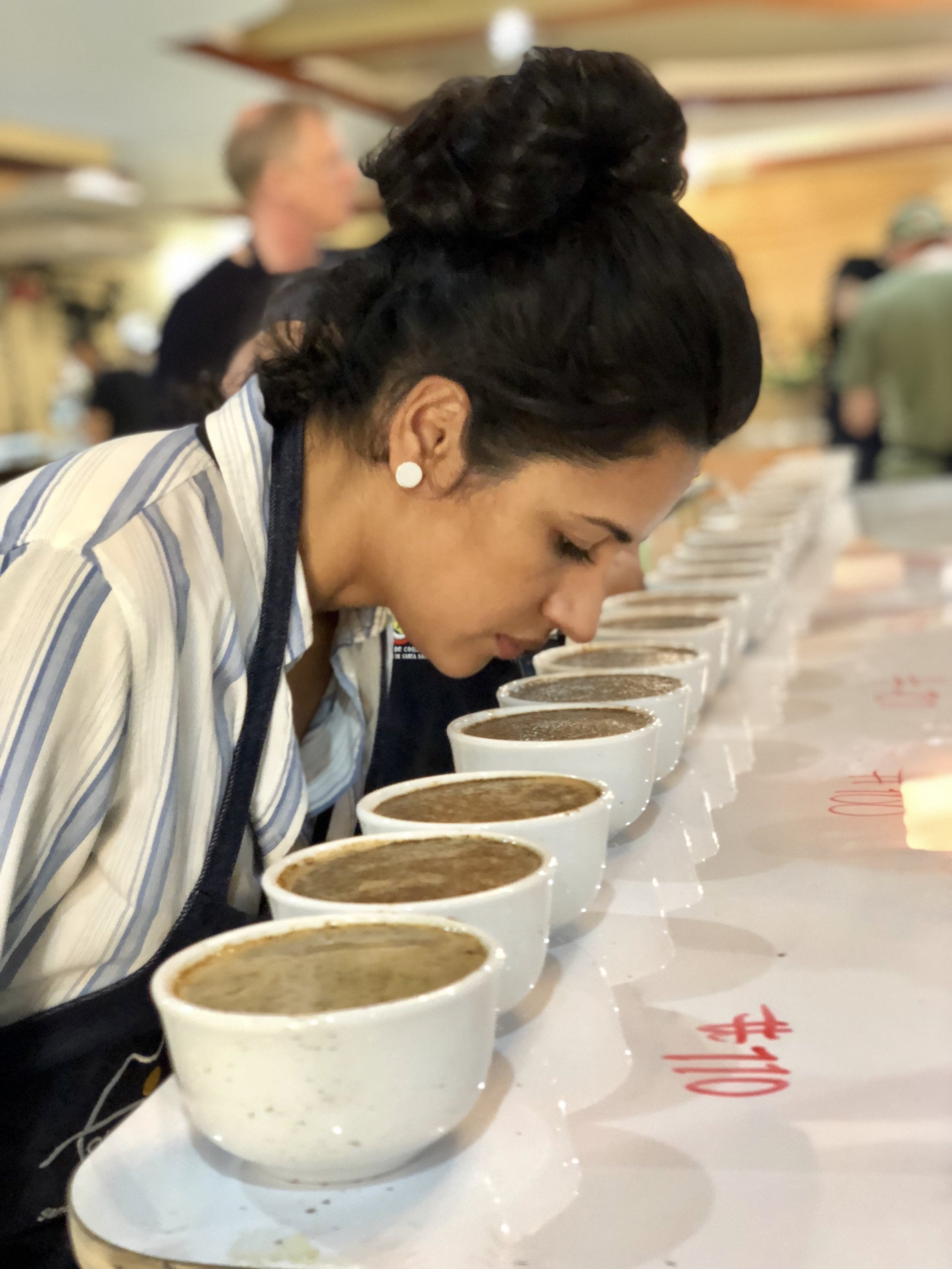




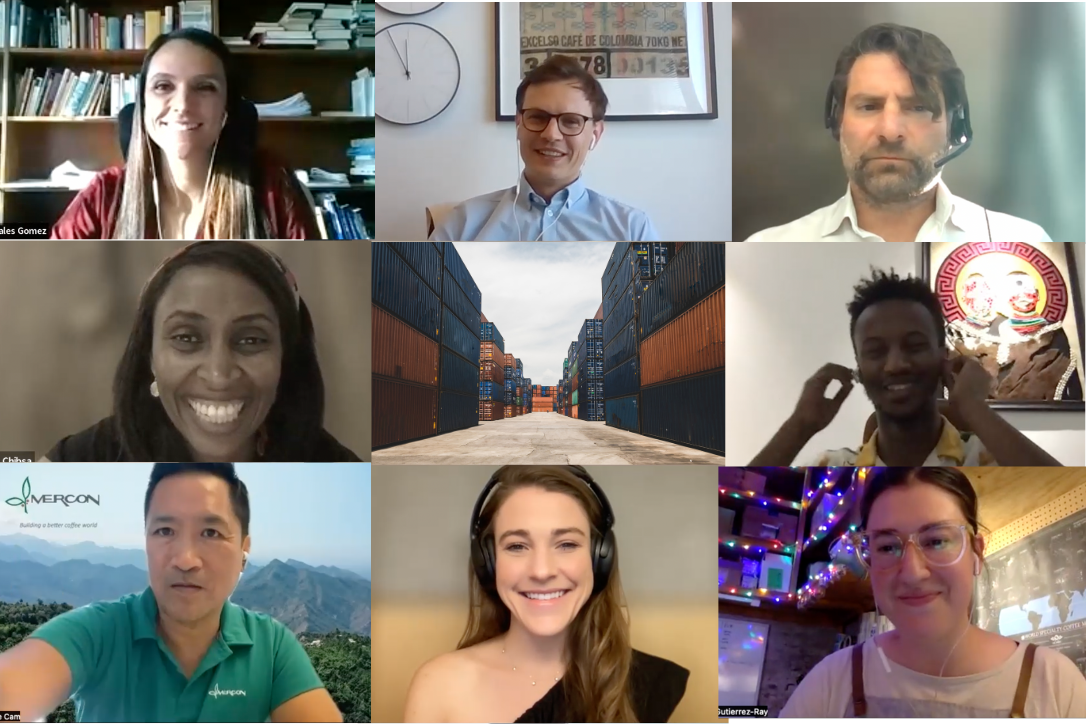
















































During this first session of the webinar series "Digitalisation of the coffee value chain: let's start talking", Sara Morrocchi, Ashlee Tuttleman and Vera Espíndola Rafael answered the question what is coffee digitalisation? They shared their perspectives and framed the conversation around the needs and challenges to be taken into account when digitalising coffee.
During this first session of the webinar series "Digitalisation of the coffee value chain: let's start talking", Sara Morrocchi, Ashlee Tuttleman and Vera Espíndola Rafael answered the question what is coffee digitalisation? They shared their perspectives and framed the conversation around the needs and challenges to be taken into account when digitalising coffee. The session is moderated by Elisa Criscione.